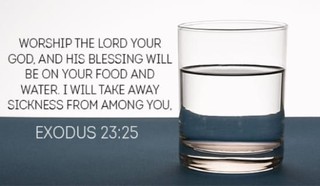- Recent Translations
- All Translations
Éxodo 23:18
Share
Settings
Éxodo 23:18 Meaning and Commentary
Thou shall not offer the blood of my sacrifice with leavened
bread
This belongs to the feast of the passover; for, as all the Jewish writers agree, this sacrifice is the sacrifice of the passover, as it is sometimes called, see ( Exodus 12:27 ) now when the paschal lamb was killed, and its blood shed, and its flesh eaten, there was to be no leaven along with it; it was to be eaten with unleavened bread, and there was to be no leaven in their houses at this time; nay, it was not to be slain until all was removed: this was the first thing the Jews did, as soon as the fourteenth day was come, to search for leaven, remove and burn it; and this sense of the law is confirmed by the Targum of Jonathan, which is,
``not a man shall slay, while there is leaven in your houses, the sacrifice of my passover;''and to the same purpose is the note of Jarchi:
neither shall the fat of my sacrifice remain until the morning;
and indeed no part of the passover lamb was to remain until the morning, what did was to be burnt with fire, ( Exodus 12:10 ) the Targum of Jonathan is,
``neither shall there remain without the altar the fat of the sacrifice of my passover until the morning, nor of the flesh which ye ate in the evening;''and so Jarchi interprets it of its not remaining without the altar.
